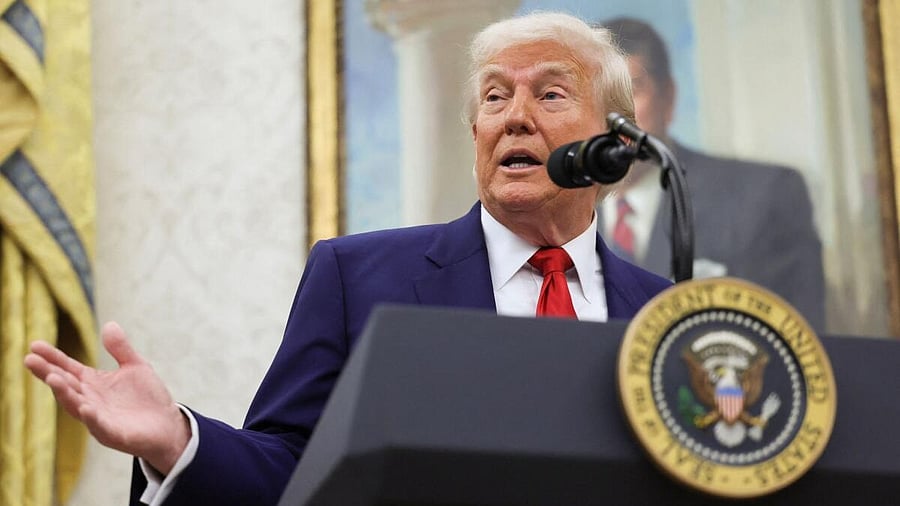
US President Donald Trump.
Credit: Reuters Photo
Washington: A panel of federal judges on Wednesday blocked President Donald Trump from imposing some of his steepest tariffs on China and other US trading partners, finding in two cases that he vastly overstepped his ability to issue those expansive duties under federal law.
The ruling, by the US Court of International Trade, delivered an early yet significant setback to Trump in his campaign to strike a series of agreements that reorient the nation's trading relationships, setting up a legal fight that could soon reach the Supreme Court.
The cases centered on the president's use of a 1977 federal economic emergency law to issue many of his steep duties, including some of his tariffs on Canada, Mexico and China, and his "reciprocal" rates on much of the rest of the world, which Trump announced and then suspended in April.
The law does not specify tariffs as a tool available to the president to protect the United States from economic threats. But Trump has invoked its powers anyway, citing a need to take drastic action in response to a wide variety of urgent matters -- including the flow of fentanyl into the United States, for example, and the country's persistent trade deficit with much of the world.
In two separate lawsuits, a group of businesses and a coalition of state officials argued that Trump's strategy had overstepped the authorities of his office, resulting in a global trade war that had saddled them with steep financial losses. The Court of International Trade agreed, finding in a single ruling that the law "does not authorize" the president to use the emergency powers law to issue tariffs.
Kush Desai, a White House spokesperson, sharply rebuked the court for its ruling, saying in a statement that unfair trade relationships had "decimated American communities, left our workers behind, and weakened our defense industrial base -- facts that the court did not dispute."
"It is not for unelected judges to decide how to properly address a national emergency," he said, adding that Trump would use "every lever of executive power to address this crisis."
It was not clear precisely when and how the tariff collections would grind to a halt. The decision gave the executive branch up to 10 days to complete the bureaucratic process of halting them. Shortly after the ruling, the Justice Department told the court that it planned to file an appeal.
Lawyers for the Justice Department had staunchly defended the legality of Trump's strategy, telling the court repeatedly that it had no right to review the president's actions -- a stance that discomfited the bipartisan panel of three jurists multiple times over weeks of arguments.
The tension arose repeatedly on May 21, when a coalition of 12 states led by Oregon asked the court to issue a permanent injunction that would halt Trump's tariffs.
"The president identified the emergency, and he decided the means to address that emergency," Brett Shumate, a lawyer at the Justice Department, told the court. He added that the goal had been to "bring our trading partners to the table" and create political leverage for possible deal-making.
"It may be a very dandy plan, but it has to meet the statute," replied Judge Jane A. Restani, who was nominated to the trade court by President Ronald Reagan.